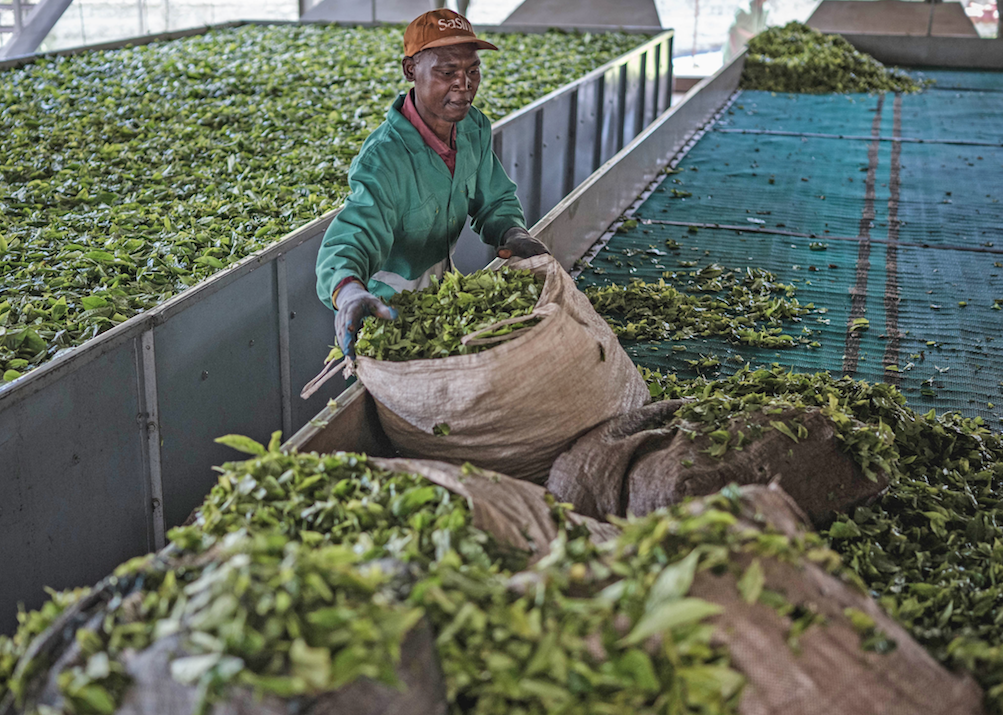
A global project spearheaded by the Food and Agriculture Organization is helping tea farmers in Kenya to lower their carbon emissions while improving their livelihoods.
With climate change threatening up to 30 per cent of current tea-growing areas by 2050, experts say action is urgent to protect one of the country’s most important crops.
The "Collaborating for an Inclusive, Resilient and Sustainable Tea Sector" project is helping smallholder tea farmers adopt low-carbon practices across the entire tea production process.
“Tea in Kenya is predominantly grown by approximately 760,000 smallholder farmers under the Kenya Tea Development Agency,” said Barrack Okoba, programme manager for Resilient Livelihoods and Climate Change at FAO Kenya.
“Their livelihoods are crucial, but if we continue with current practices, emissions will keep rising and that is a global concern.”
The goal is to help farmers and factories transition from conventional methods to more climate-smart approaches.
“We need to adopt climate-resilient tea varieties and better farming practices. Climate change is already impacting tea-growing areas. If we don’t act, we could lose nearly 30 per cent of our current tea-growing land by 2050,” he warned.
He made these remarks at a global expert workshop focused on developing a framework for carbon-neutral tea production.
The event brought together tea growers, processors, policymakers and researchers to ensure the plan is inclusive and practical.
The FAO project concentrates on pinpointing key stages in the tea production chain where emissions occur and developing practical guidelines to reduce them.
Okoba added that research institutions are working to develop new tea varieties that can withstand climate impacts, enabling farmers to continue growing tea in the same fields using improved strains.
Another priority is reducing the use of firewood in tea processing, a significant source of carbon emissions.
“Tea factories use a considerable amount of firewood. We need cleaner energy solutions and improved technologies to process tea more efficiently,” Okoba said.
“We also aim to certify our tea as ‘low carbon.’ This would help us achieve higher prices in the global market, putting more money into farmers’ pockets.”
The project has already tested alternative energy sources and identified areas where change is necessary, whether in farming methods, transportation, or processing systems.
Okoba noted that KTDA, government partners and FAO are collaborating to address these shortcomings.
The initiative is a partnership between FAO, the Kenyan Ministry of Agriculture, the Chinese government and Germany’s Ministry of Agriculture.
It runs from 2021 to 2027 and operates in all major tea-growing regions, with the Kalro-Tea Research Institute leading the research into new tea varieties.
Daneswar Poonyth, an economist at FAO, noted that tea plays a vital role in rural development, food security and poverty reduction in many developing countries.
“However, the tea sector is facing serious challenges from climate change and environmental sustainability. To remain competitive and sustainable, we must move towards a zero-carbon strategy,” he concluded.




![[PHOTOS] Gachagua warm reception in Nyandarua](/_next/image?url=https%3A%2F%2Fcdn.radioafrica.digital%2Fimage%2F2025%2F04%2Fc2a8c64d-5577-4768-a0ac-513c8876c288.jpeg&w=3840&q=100)






